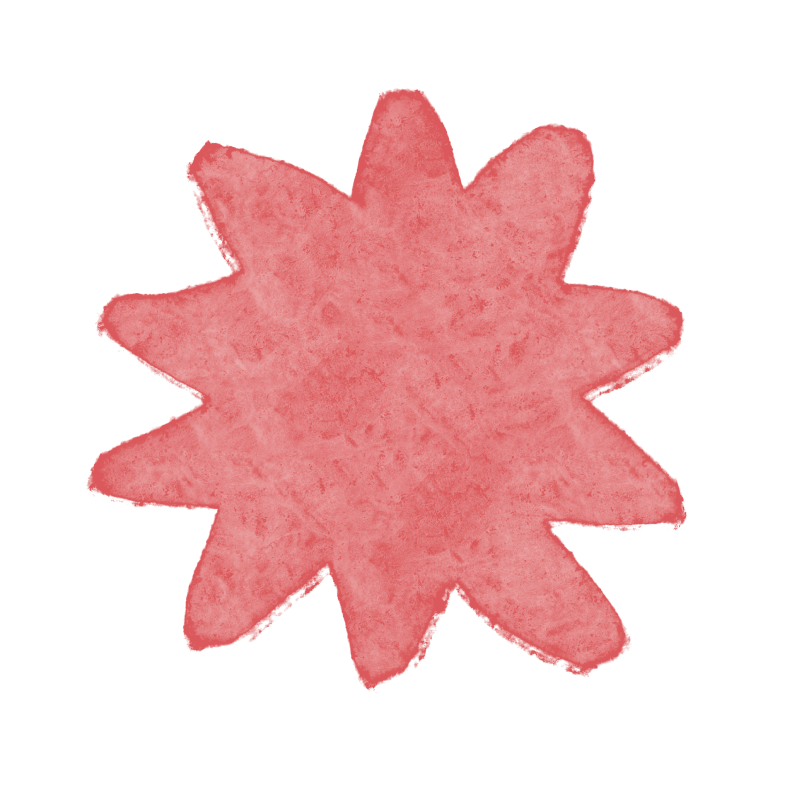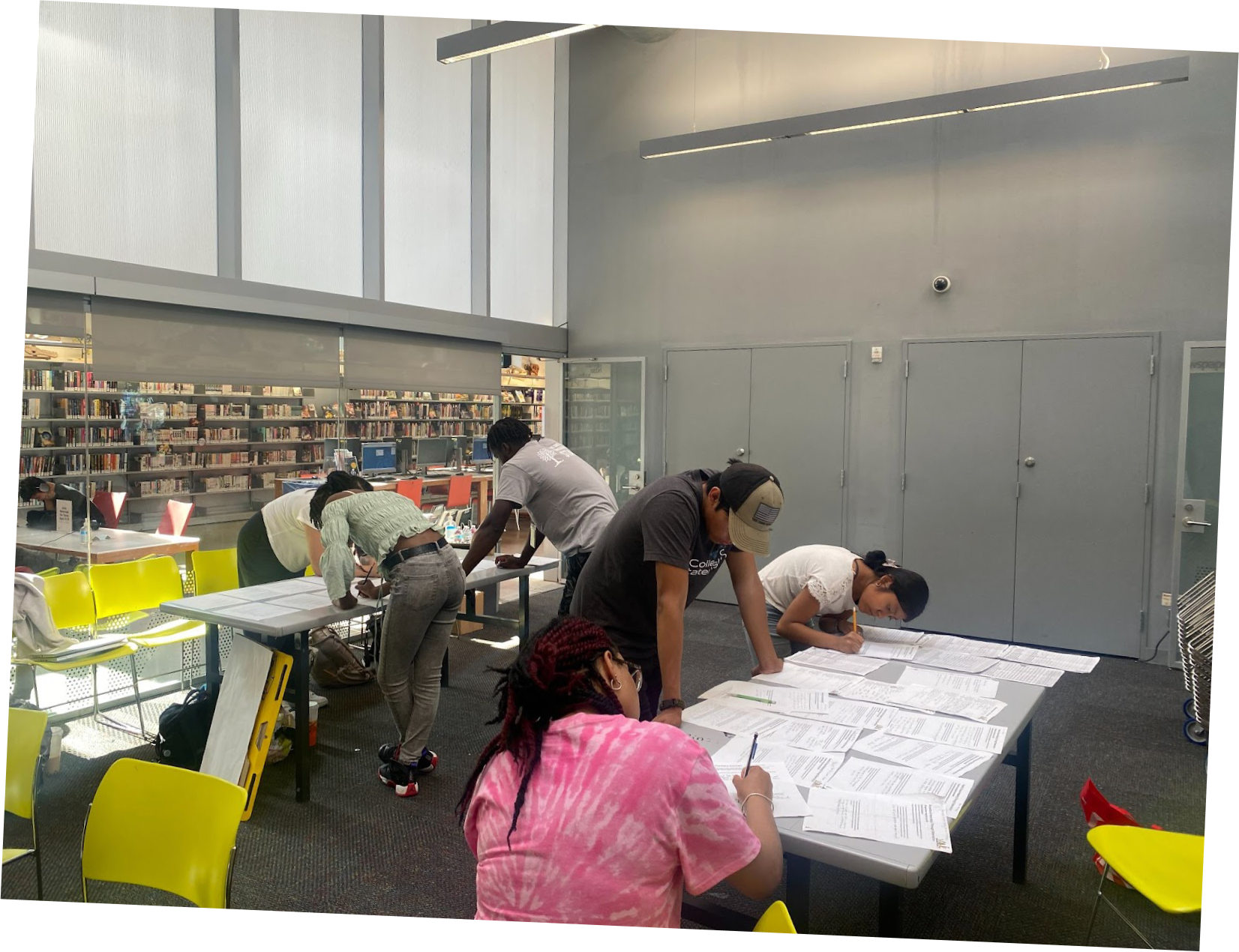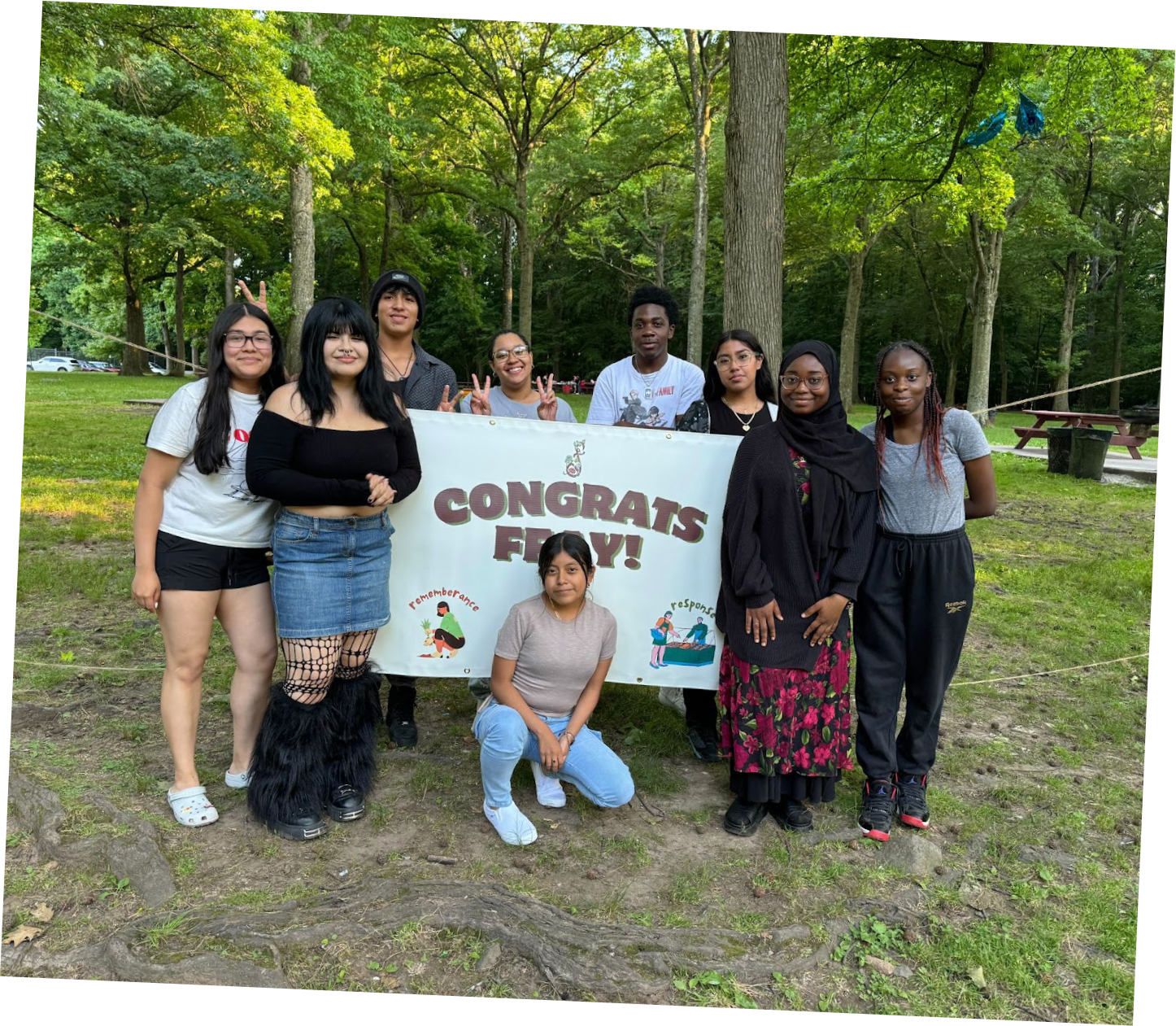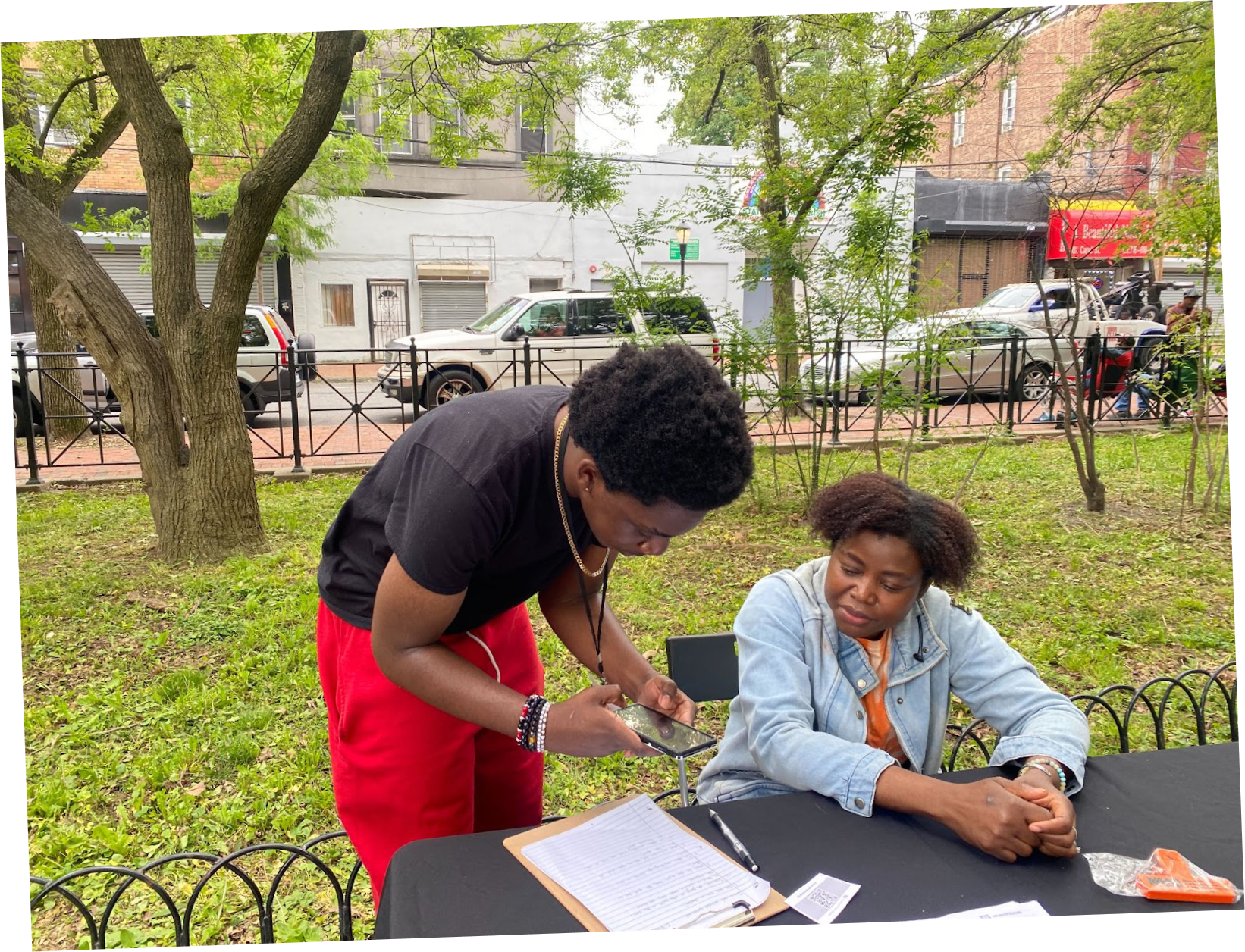Youth Programs
At Forgotten Foods, we are dedicated to providing the resources, support, and guidance necessary for youth to embark on a journey of self-discovery and commitment to transforming their community. We are dedicated to fostering the holistic development of young people, prioritizing who they become over what they do. Our programs establish a nurturing and transformative haven where youth can uncover their passions, values, and innermost aspirations while learning skills, concepts, and frameworks needed to be community organizers.
Forgotten Foods and Youth (FFAY) Internship
FFAY is a 6-month community food organizing internship for Staten Island youth (ages 16 - 18). Our internship educates, trains, and organizes youth to creatively transform Staten Island’s local food system, culture, and neighborhood spaces. Interns are trained in community organizing skills such as event planning, outreach, interpersonal communication, and community-based research. They are also introduced to urban agriculture and culinary as tools for community engagement.
Forgotten Foods Fellowship
Forgotten Foods Fellowship is a 10-month educational and hands-on experience for Staten Island young adults (ages 21 - 24). Fellows are trained to be neighborhood organizers who creatively tackle food justice issues using a root-cause approach. They learn Forgotten Foods’ community organizing approach and principles, food justice and mutual aid-related terms, popular education, and how to analyze City policy. In the latter half of the fellowship, fellows apply skills and concepts learned to co-develop curriculum, co-facilitate FFAY internship classes, and co-organize a neighborhood project.
Past Interns
& Their Journeys
Meet Dana –
a 2024 FFAY Intern.
Dana is a high school senior and an aspiring therapist.
What new skills did you gain from FFAY?
I came out of this internship with so much more confidence. FFAY taught me interpersonal communication skills—like how to approach people and hold a conversation. I also learned how to develop interview questions to ask community members about the change they want to see in their neighborhood. For example, I went to a job fair at school.
Before FFAY, I would have been too shy to approach tables and ask about their work. But because of the skills I learned, I was able to boldly walk up to people, ask for their information, and really learn from them.
Before FFAY, I thought I didn’t like group work because people were usually quiet, but once we got comfortable in the internship, everyone opened up. I even became friends with Gianni, who I hadn’t talked to before. I gained skills in listening, communication, and even interviewing—something I’d never done before but now feel confident about.
What motivated you to join FFAY?
I joined FFAY because, honestly, I didn’t have much experience talking to people in a work setting, and I thought it would be a great way to get involved. My mom is really active in the community—she goes to events and volunteers all the time—and I wanted a chance to follow in her footsteps. I did not want to apply to the internship program initially because I didn’t think it aligned with what I wanted to do in the future but my dad encouraged me to apply and said, “What’s the worst that can happen?”
What projects and activities did you enjoy the most as a FFAY intern?
My favorite part of the internship was the meetings we had with facilitators to talk about our goals and create a plan to achieve them. I also enjoyed helping to run a community organizing table at the neighbors market.
“FFAY feels like a welcoming family where you can make others feel a part of a family too. It’s a place where you can be yourself and share your ideas.”
How did FFAY impact you?
The FFAY internship has changed my perspective on my career path. I used to want to be a private therapist, but now I’d rather work in public schools and get covered by Medicare so I can reach more people.
The internship helped me think beyond myself and made me want to pursue a career that has a broader impact.
Right now, I’m part of a club that teaches young adults life skills, so I’m still applying what I learned in FFAY about myself and my community and sharing it with others.
Advice for Future Interns
“Be open-minded. You’ll gain useful knowledge and skills that might change your views, even if you don’t think they’re relevant now.”
What did you learn about community organizing and Staten Island’s social issues after FFAY?
One of the biggest things I learned is that community organizing isn’t about what I want, even though I’m part of the community. Everyone has different things they want to change in our neighborhood, and I learned how to listen to those voices. I also realized that gentrification is happening on Staten Island and that it connects directly to our food system.
Share a memorable experience you had in FFAY.
There was a day when I did not want to show up to the internship because I was feeling emotionally down and didn’t want to talk to anyone. I even wore pajama pants to the internship. That day, we were discussing food insecurity and brainstorming ideas for an ideal community that addresses these issues. It felt amazing to share my ideas and be heard by the other interns. It was a rare opportunity to imagine what my ideal community looks like, and it really cheered me up.
Meet Intell.
Intell is an Apple Corps fellow at the City University of New York (CUNY) John Jay College of Criminal Justice.
What new skills did you gain from FFAY?
I have always been a good public speaker, but FFAY helped me to strengthen this skill. We were always encouraged to speak more during internship classes and I practiced this skill when I approached strangers during my interviews. I learned how to not get tripped up on words and to make sure I am preparing what I want to say before speaking. FFAY also helped me to hone in on my research skills. I had to research more content and make sure where I was getting my information from was professional and credible.
What motivated you to join FFAY?
At the time, I needed a job and the stipend FFAY offered was competitive. Rather than taking a job in a different borough, the internship was conveniently located in my neighborhood and I was motivated to get out of the house more. It was a very competitive process and I was selected out of a large pool of applicants who I thought would get it over me. During the interview, my eyes were opened to the issues going on in Staten Island.
Initially, I did not enjoy living in Staten Island, but I saw a lot of people going out of their way to change Staten Island and I was motivated so I applied.
What projects and activities did you enjoy the most as a FFAY intern?
I was one of the interns who presented our youth participatory action research (YPAR) to Curtis freshmen and sophomores. It was fun sharing our growth as interns throughout the program. I also enjoyed going on field trips to farms across Staten Island. We went to Snug Harbor Heritage Farm and Green City Force’s Eco-Hub in Mariners Harbor. We learned about composting, plant families, and how the community uses the Eco-Hub as a space to learn more about growing food. The last activity that I enjoyed was the neighborhood walk. We went on a walk to identify issues going on in Stapleton (empty businesses, gentrification, trash, amount of police in the neighborhood, amount of green spaces) and also positive resources in the neighborhood.
How did the internship help you grow in terms of personal, relational, and skill-based outcomes?
FFAY helped me a lot with my leadership skills; people have always told me that I had it but I never put it into use. As a FFAY intern, I grew in my leadership skills to give people advice, stand up for other interns to make them feel heard, and encourage other interns who were nervous to interview community members. The FFAY facilitators shared that I have strong leadership skills and that I could be a facilitator one day, which motivated me even more to strengthen this skill. This experience also helped me to be less judgemental when meeting new people.
Coming to FFAY helped me to use my leadership skill for positive change.
“FFAY was a space where I felt like I could breathe during this difficult time. The support and encouragement I received from my facilitators helped me a lot.”
Did you face any challenges during your roles as an intern in projects, collaboration activities, or tasks assigned? How did you overcome them?
I was going through a rough time towards the end of the internship because I was missing the required credits to graduate. I was stressed out and annoyed, but I was able to overcome my feelings and put in the work needed to graduate. My end goal was to graduate high school and be an example for my siblings. I remained determined with advice from my parents, FFAY facilitators, and friends to find encouragement.
FFAY was a space where I felt like I could breathe during this difficult time. The support and encouragement I received from my facilitators helped me a lot.
Being able to put my energy towards something positive for the community was also helpful.
How did FFAY impact you?
This internship influenced my current path by encouraging me to be an advocate for change, who breaks social stigmas and the status quo. My future goal is to be a US Marshal to break the stigma that Afro-Caribbean/American men can be more than rappers or basketball players.
Advice for Future Interns
If you don’t like Staten Island or the place you moved to, join a program that could open up your perspective and change your mind. Even if you don’t like being here, try to do something to learn and change your community.
In one sentence, how would you describe your FFAY internship experience?
“Being self-made means putting yourself in positions to help others put themselves in positions to be successful.”
- A Boogie Wit da Hoodie
















